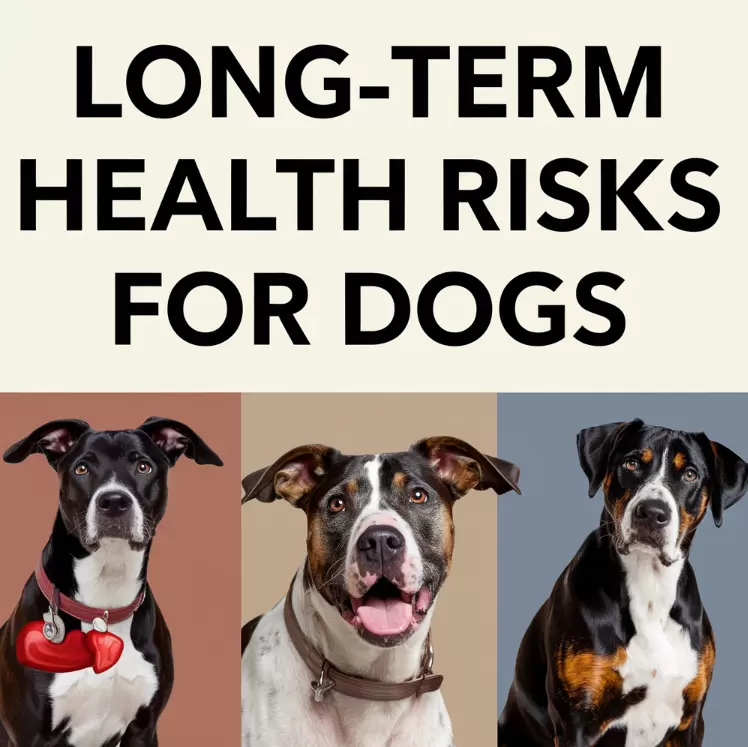Ever caught your pup eyeing your ice cream cone? You’re not alone. As dog owners, we often wonder if sharing our sweet treats is okay. But is sugar bad for dogs? Let’s dig into this sticky subject and uncover the facts.
The Scoop on Dogs and Sugar
First things first – dogs don’t need sugar like we do. Their bodies are built differently. While they might wolf down a sugary snack, it’s not doing them any favors.
“A dog’s digestive system isn’t designed to handle lots of sugar. It’s like putting the wrong fuel in a car.” – Dr. Lisa Werth, Veterinary Nutritionist
Why Dogs Dig Sweets

Believe it or not, dogs can taste sweetness. But their sweet tooth isn’t as strong as ours. When your furry friend begs for your cookie, it’s probably more about the fat or just wanting to share what you’re enjoying.
The Not-So-Sweet Side Effects
So what happens when dogs eat sugar because sugar bad for dogs? It’s not pretty:
- Sugar Rush: Just like kids at a birthday party, dogs can get hyper from sugar. Then comes the crash.
- Tummy Troubles: Sugar can upset your dog’s stomach, leading to vomiting or diarrhea.
- Weight Gain: Those extra calories add up fast, especially for smaller dogs.
- Dental Disasters: Sugar feeds the bacteria that cause tooth decay and gum disease.
Long-Term Health Risks

Regular sugar intake can lead to some serious health issues:
- Obesity
- Diabetes
- Heart problems
- Joint issues
Hidden Sugar Bombs
Sugar bad for dogs doesn’t just mean table sugar. It’s hiding in lots of places:
- Some dog treats
- Certain brands of dog food
- Human foods like peanut butter or ketchup
- Fruits (yes, even natural sugars count!)
Sneaky Sugar Names
Sugar goes by many aliases. Watch out for these on labels:
| Sugar Alias | Where You’ll Find It |
| Dextrose | Processed dog treats |
| Fructose | Fruit-flavored snacks |
| Maltose | Some canned dog foods |
| Sucrose | Table sugar |
The Xylitol Danger Zone
When talking about sugar bad for dogs, xylitol deserves special mention. This artificial sweetener is super toxic to dogs.
Why Xylitol is a No-Go
Xylitol causes a rapid drop in blood sugar and can lead to liver failure. Even a small amount can be deadly.
Where Xylitol Hides
- Sugar-free gum
- Some peanut butter brands
- Certain medications
- Some baked goods
If your dog eats anything with xylitol, it’s an emergency. Get to the vet ASAP!
Healthier Alternatives
Just because sugar’s off the menu doesn’t mean your pup can’t enjoy a treat now and then.
Dog-Friendly Fruits
These fruits are safer in small amounts:
- Blueberries
- Strawberries
- Apple slices (no seeds!)
- Watermelon (seedless)
Remember, even natural sugars should be given in moderation.
Homemade Treats
Try making your own dog treats. You control the ingredients and can skip the sugar altogether.
When Sugar Isn’t All Bad
Believe it or not, there are times when a little sugar can help because sugar bad for dogs.
Hypoglycemia Emergencies
In rare cases of low blood sugar, a quick sugar boost can be a lifesaver. But only do this under a vet’s guidance because sugar bad for dogs.
Real-Life Example: Max, a tiny Chihuahua, once collapsed from low blood sugar. His quick-thinking owner gave him a dab of honey, which perked him up until they reached the vet.
Keeping Your Dog Healthy in a Sugar-Filled World
Here’s how to keep your furry friend fit and sugar-free:
- Read labels carefully
- Choose high-quality, low-sugar dog food
- Limit human food treats
- opt for healthy, sugar-free dog treats
- Keep your dog active with regular exercise
Signs Your Dog Might Need a Sugar Detox

Watch out for these red flags:
- Sudden weight gain
- Increased thirst and peeing
- Changes in energy or mood
- Bad breath or dental issues
If you spot these, it’s time for a vet check-up.
Frequently Asked Questions (FAQs):
Q: Can dogs taste artificial sweeteners like aspartame?
A: No, dogs can’t taste artificial sweeteners like aspartame because sugar bad for dogs. However, this doesn’t make them safe. Some artificial sweeteners can still cause digestive upset or other health issues in dogs.
Q: Are there any breeds more prone to sugar-related health issues?
A: Yes, some breeds like Labrador Retrievers, Beagles, and Pugs are more prone to obesity and diabetes, making them more susceptible to sugar-related health problems.
Q: How long does it take for a dog to show symptoms after eating sugar?
A: Symptoms can appear within 30 minutes to a few hours after sugar consumption, depending on the amount eaten and the individual dog’s sensitivity.
Q: Can sugar affect a dog’s behavior?
A: Yes, sugar bad for dogs because excessive sugar intake can lead to hyperactivity, anxiety, and even aggression in some dogs due to blood sugar fluctuations and overall discomfort.
Q: Is it okay to use sugar-free peanut butter as a treat for dogs?
A: It depends. Some sugar-free peanut butters contain xylitol, which is toxic to dogs. Always check the label and choose natural, unsweetened peanut butter instead.
The Bottom Line: Is Sugar Bad for Dogs
Is sugar bad for dogs? In most cases, yes. While a tiny taste won’t hurt, it’s best to keep sugary treats out of your pup’s diet. Focus on healthy, dog-appropriate foods and treats instead.
Remember, every dog is different. What works for one might not work for another. Always chat with your vet about the best diet for your furry friend.
By keeping sugar out of your dog’s bowl, you’re setting them up for a longer, healthier, tail-wagging life. And that’s pretty sweet, isn’t it?

Freya Lily has been a passionate blog writer since 2010, crafting content that captivates and informs her readers across a variety of topics. With over a decade of experience, Freya has honed her skills in delivering insightful and engaging narratives that resonate with her audience. Her dedication to quality writing and her ability to adapt to evolving trends have established her as a notable voice in the blogging community, where her work continues to inspire and engage readers.